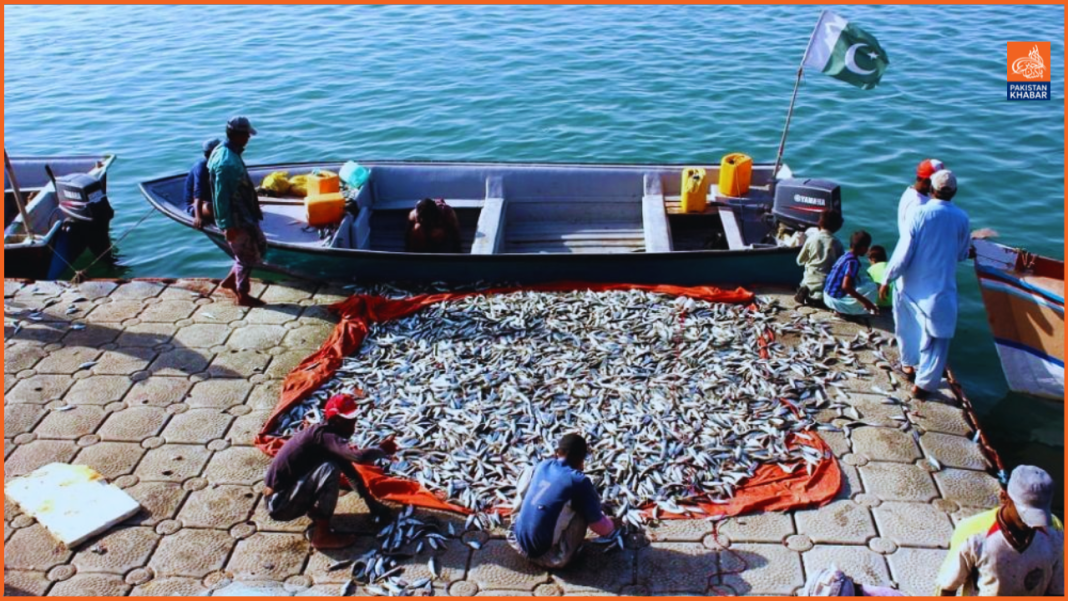The Balochistan government is actively formulating policy incentives aimed at boosting the fisheries sector’s productivity. As part of this initiative, funds have been allocated in the budget to stimulate growth, and the government is also planning to invest in the Fishermen Endowment Fund to support local fishing communities.
Nisar Meerani, the Director of the Fisheries Development Board, emphasized the importance of these incentives in an interview with WealthPK, stating that the fisheries sector is a crucial source of employment along Balochistan’s extensive 770-kilometer coastal belt. He noted that the policy incentives are nearing completion and will be rolled out soon to promote development within the sector.
Balochistan’s fishing industry is integral to the provincial economy, providing both direct and indirect employment opportunities for thousands, ranging from fishermen to those engaged in processing, transporting, and marketing fish products. Meerani pointed out that fish exports significantly contribute to Pakistan’s foreign exchange earnings, underscoring the sector’s importance to the national economy.
The coastal waters of Balochistan are rich in marine biodiversity, thanks to the nutrient-laden waters of the Arabian Sea, which supports various marine species, including fish, crustaceans, and mollusks. However, concerns about overfishing have been raised by local exporters like Jan Muhammad Baloch. He highlighted that unsustainable fishing practices and a lack of effective regulation have put immense pressure on fish stocks, with illegal fishing by foreign vessels exacerbating the situation.
Additionally, pollution, habitat degradation, and climate change pose significant threats to Balochistan’s marine ecosystems. Industrial waste and plastic pollution are damaging marine habitats, adversely affecting the health of marine life. Baloch pointed out that the absence of modern infrastructure, such as better harbors and cold storage facilities, hampers the sector’s efficiency and profitability.
Despite these challenges, Baloch remains optimistic about the potential for sustainable development in Balochistan’s fishing industry. He stressed that with the right policies and investments, the sector could transform into a sustainable and profitable industry. Key measures include implementing fishing quotas, protecting critical habitats, and promoting the use of selective fishing gear to reduce bycatch. Training programs for fishermen in modern fishing techniques and post-harvest processing can significantly enhance the quality and value of fish products, ensuring the industry’s long-term viability.




